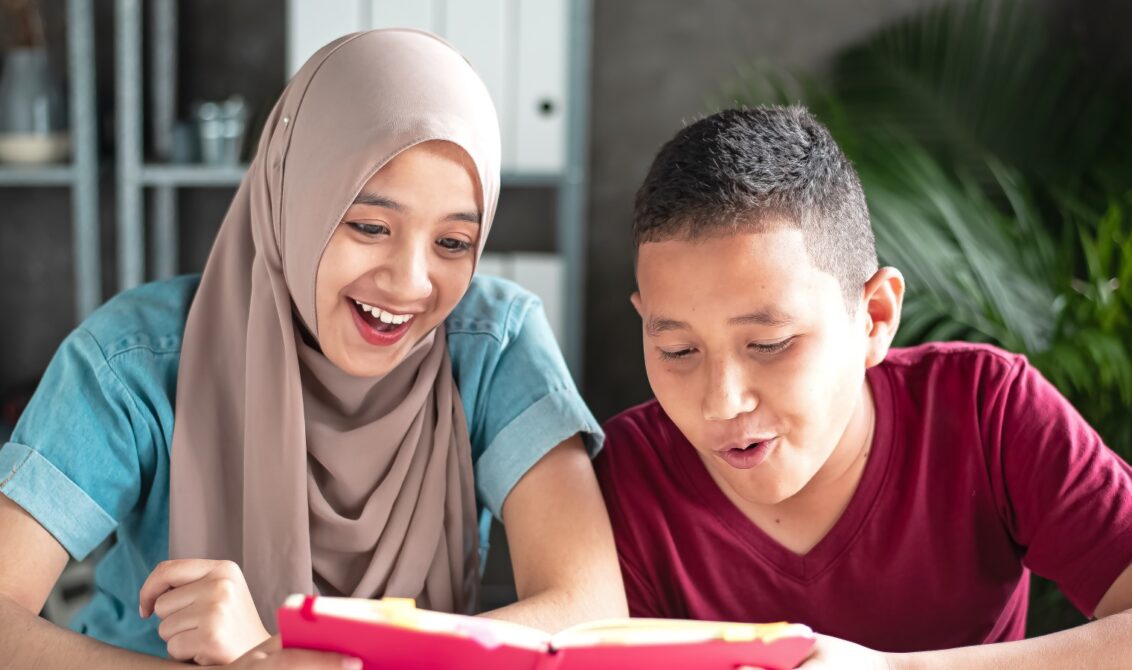
Already an ActiveLearn Secondary customer or currently trialling it with your students? Then this is article is for you!
With school holidays fast approaching, now’s the time to make the most of your ActiveLearn subscription (or your free two-month trial if you’ve not yet subscribed) and get your students completing tasks, researching, gaining independent skills, and revising for the new school year ahead.
Here are six top tips for keeping your secondary students’ learning going over the summer break this year. If you’re teaching primary learners, check out these tips.
1. Encourage descriptive writing with a trip to space or the Taj Mahal
There are lots of ways to encourage your students to continue to write during the holidays with Inspire English’s range of digital resources. You’ll find short, structured activities all arranged around a theme to inspire students to write within a context.
Try these three lesson ideas with your students through the holidays – you’ll find the planning advice from the pages from the teacher guides as well as short activities from the Student Books and Workbooks that you can download and send straight to your students. Ask your Year 7s to travel to space, challenge your Year 8s to create their own play script, and get your Year 9s to imagine they’ve travelled to the Taj Mahal.
How to do it:
Log in to your Inspire English subscription on ActiveLearn and share the online workbooks and student books with your students to use over the holidays.
Learn how to assign ActiveBooks in this overview video.
Check out this article from David Grant, author of Inspire English, in which he suggests many ways to encourage your students’ independent thinking when writing.
You could also:
- use these three lesson ideas for Years 7, 8 and 9 to inspire your students with relevant topics.
- watch this webinar walk-though on Inspire English’s student books and workbooks.
2. Set your students a STEM project and get them thinking about the career skills they’ll need
Use Exploring Science International’s real-world life examples to get your students thinking about different types of STEM careers and what they may like to do in the future. The STEM pages and activities in the online student books will spark your students’ curiosity with images, fun facts, animations, videos and the tasks will help them develop their own STEM skills.
Try the Building Robots pages with your Year 7 students and encourage them to think about how they would design and build their own robot – you could then ask them to have a go at making one of their own in the holidays.
How to do it:
Log in to your Exploring Science International subscription on ActiveLearn and assign the online student books with your students to use over the holidays. Learn how to assign ActiveBooks in this overview video.
You could also:
- watch this webinar to find out how to make the most of Exploring Science International’s online resources.
3. Bring culture to language learning without leaving home
Many students this year will not be going on holiday but you can instead encourage the development of their language learning by immersing them in Spanish, French or German culture to give a context to their learning. For some ideas, read how to keep your languages students engaged over the holidays.
Why not ask your students to use Google Earth or Maps to explore towns and cities in the country where the language is spoken? They could create an itinerary for their ideal day in Madrid, for example, researching cultural landmarks, museums and restaurants they’d like to visit.
For an offline activity, you could ask your students to cook a traditional recipe, take photos of the result and ask their family members to review the dish. Or you can encourage them to watch age-appropriate documentaries, films and television programmes in the target language. All these activities will give a new dimension to the language they are studying.
How to do it:
Use samples from our brand-new endorsed resources for Pearson Edexcel International GCSE (9–1) languages for French, German and Spanish.
Or if you teach 11-14 Modern Languages, log in to your ActiveLearn subscription and assign a student book task to your students.
You could also:
- Learn how to use our Modern Languages ActiveBooks in this overview video.
4. Set practical maths activities that would not be easy to organise in a classroom
Katherine Pate, one of the series editors of Maths Progress International suggests now is the ideal time to get students to think about maths problems that are normally tricky to organise when you have all students in a classroom. Encouraging students to think like a mathematician and using real-world problem-solving and reasoning helps students to reflect on what skills they’ve already learnt.
For example, you could ask your students to make a video of themselves opening a box to show its net; or ask them to measure the distance their bicycle travels in one revolution of the wheel, and compare this to the radius of the wheel. You could set this as a practical task after your Year 8 students have completed the homework tasks on 2D shapes and 3D solids unit.
How to do it:
Log in to your Maths Progress International subscription on ActiveLearn, search for the relevant unit and assign the student book and homework tasks to your students. Watch how to assign tasks here.
You could also:
- read more from Katherine Pate in her article Making the most of Maths Progress International for online teaching.
5. Build independent learners ready for the new school year with our student ActiveBooks
The further students progress on their learning journey, the more they will need to acquire skills in becoming an independent learner – managing their own learning time, annotating and researching the information they need, using problem solving to find solutions. This is more important than ever for Year 10, soon-to-be Year 11 students about to embark on their international A levels.
The ActiveBooks in most of our secondary subjects and programmes allow students to become independent learners with a range of interactive tools and resources. Students can highlight, annotate and make their own notes next to text, question what they are learning and save their thinking for when they choose to return to their learning. They can also take ownership of their own progress with the self-marked exam-style questions.
How to do it:
Watch how to use and assign ActiveBooks then when you’re ready, log in to your ActiveLearn account, and assign them to your students.
You could also:
- Check out our parent support page which has information for parents on how to help set their children up with their assigned ActiveBooks, as well as free eBooks for them to try out – make sure to share this with your students’ parents!
6. All that great holiday learning is captured in ActiveLearn’s reporting dashboard
ActiveLearn’s powerful assessment tool helps you assess, track and report on your students’ progress over the holidays. Students can leave notes in the ActiveBooks for you to read and respond to (after the holidays!).
All their assignments are automatically collected and marked and a handy email summary of results sent to you. You can keep track of student progress over time with an easy-to-use traffic light system, ensuring you are alerted to areas where students need extra support and make planning easy for when you return for the new year. Plus, you can extract any reports to send on to their new teachers, or parents or your Head.
How to do it:
Log in to your ActiveLearn subscription to find the reporting tools you need to help you track your students’ progress:
- The Task Report shows results for each task that has been set.
- The Student Task Report shows task results for individual students (this may be useful for sharing with colleagues or parents).
- The Progress Report shows RAGG results (from tasks or self study) by level or grade for students. As the year progresses and students complete exercises, this can help for identifying the level a student is working at.
We hope you have a restful summer break and that these ideas are useful and helpful. For more ideas on how to relax, check out this article on how to recharge your batteries over the summer.
In this article
- British curriculum
- COVID-19 support
- Educators
- English
- Languages
- Maths
- Remote learning
- Science
- Secondary
- British curriculum
- Distance learning
- Educators
- English
- ILower Secondary
- International GCSE
- languages
- learners
- learning
- lesson ideas
- Maths
- Online learning
- Parents
- Reading
- Resources
- school holidays
- Science
- Secondary
- teaching
- Writing

